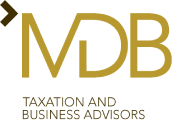How to Prepare Your Business for the Superannuation Guarantee Increase in the financial year 2024
As announced by the Australian Government, the superannuation guarantee (SG) rate for your employees is going up from 10.5% to 11% from 1 July 2023. This is part of the government’s plan to boost retirement savings and take pressure off the welfare and pension system as Australia’s population ages.
But what does this mean for your business and how can you get ready for it? In this blog post, I will share some tips and insights on how to prepare your business for the Super Guarantee increase and how our team of business accountants in Melbourne and Brisbane can help you.
What is the superannuation guarantee and why is it increasing?
The superannuation guarantee is the minimum amount of superannuation contributions that employers must pay for each eligible employee on top of their wages or salary. The SG rate is set by the government and is currently 10.5% of an employee’s ordinary time earnings (OTE).
The SG rate is set to increase gradually until it reaches 12% by 2025, according to the following schedule:
– 1 July 2023: 11%
– 1 July 2024: 11.5%
– 1 July 2025: 12%
The government’s rationale for increasing the SG rate is to ensure that Australians have adequate retirement savings and can enjoy a comfortable standard of living in their later years. According to the government, the SG increase will boost the retirement incomes of around 12 million workers by an average of $19,000.
How will the SG increase affect your business?
As a business owner, you will need to pay more super contributions for each eligible employee from 1 July 2023. This will increase your payroll costs and may affect your cash flow, especially if you have a large or growing workforce.
Cash flow is the lifeblood of any business. It is the amount of money that flows in and out of your business over some time. It reflects your ability to pay your bills, cover your expenses, invest in your growth, and generate profits.
If your cash flow is positive, you have more money coming in than going out. This gives you financial stability and flexibility. If your cash flow is negative, you have more money going out than coming in. This can put you at risk of running out of cash and facing financial difficulties.
To prepare your business for the SG increase, you must plan and take proactive measures to minimise the impact on your cash flow. Some of these measures include:
- Reviewing your pricing strategy and adjusting your fees or sale prices accordingly
- Reviewing your wage or salary arrangements and negotiating with your employees
- Reviewing your staffing levels and hiring or outsourcing decisions
- Reviewing your budget and cash flow projections and identifying areas for cost savings or revenue growth
- Reviewing your tax obligations and planning for your tax payments (ask us for some tax planning and savings advice 😉
- Reviewing your superannuation arrangements and ensuring you comply with your super obligations
- Having contingency funds or credit facilities such as an overdraft or credit card
How can our business accountants in Melbourne and Brisbane help you?
As a leading Australian accounting firm in Melbourne and Brisbane, we have extensive experience and expertise in helping businesses of all sizes and industries with their cash flow management. We can help you with:
- Analysing and forecasting your cash flow and identifying any potential issues or opportunities
- Advising you on how to optimise your cash flow, tax planning, and business strategy in light of the SG increase
- Providing you with practical and tailored solutions to improve your cash flow, such as invoice financing, debt restructuring, expense reduction, or revenue diversification
- Providing you with ongoing support and guidance on any cash flow issues or changes
- Tax flow report giving you a complete estimate and due dates of your next 12 months of tax payments
We understand that the SG increase may pose some challenges for your cash flow, but we are here to help you overcome them. We are more than just accountants in Melbourne and Brisbane – we are your trusted business Advisors who care about your success.
What dates do I need to pay my employees super?
Up to the 30th of June 2026 super will be due
28 days after the end of the quarter end of the Quarter:
- 1 July – 30 September is due 28 October
- 1 October – 31 December is due 28 January
- 1 January – 31 March is due 28 April
- 1 April – 30 June is due 28 July
From the 1st of July 2026 employee superannuation will be due on the same day as salary and wages are paid.
Don’t let the SG increase affect your cash flow negatively. Contact us today and let our expert business accountants in Melbourne and Brisbane help you improve your cash flow.

